Teeth-cleaning mistakes
You know the drill when it comes to keeping your teeth and gums healthy: Brush at least twice a day and floss at least once a day to maintain good oral hygiene. This helps to prevent plaque, a sticky white film that forms on teeth and can contain bacteria. Plaque build-up can contribute to tooth decay and gum disease, according to the American Dental Association (ADA).
Although you may be an avid tooth brusher and flosser, there are still errors you’re probably making with your oral care.
Keep your teeth clean and healthy by avoiding these 12 common teeth-cleaning mistakes that make dentists cringe.
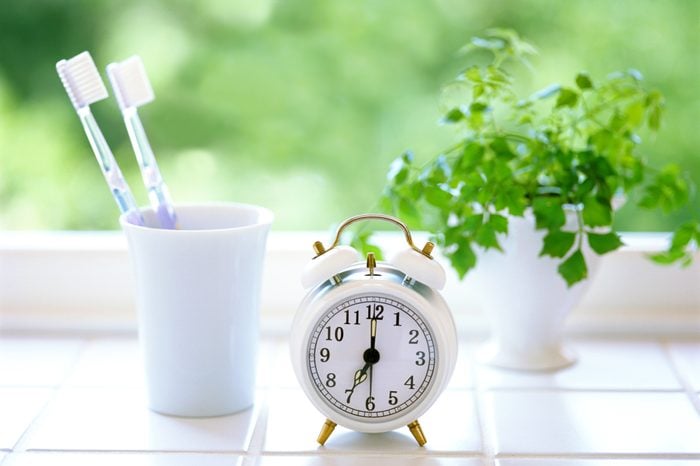
You only brush once a day
Brushing your teeth only once a day is a habit that dentists aren’t that happy about. It can leave plaque at the gumline causing inflammation, says Michael Kleinman, DMD, a dentist in Souderton, Pennsylvania. “When it gets advanced, the tissue starts to peel away from the root of the tooth, the gum and bone get infected and you can lose teeth.” Avoid this by brushing your teeth twice a day with a soft-bristled brush, the ADA recommends. (Here’s more about how bad it is to brush your teeth just once a day.)
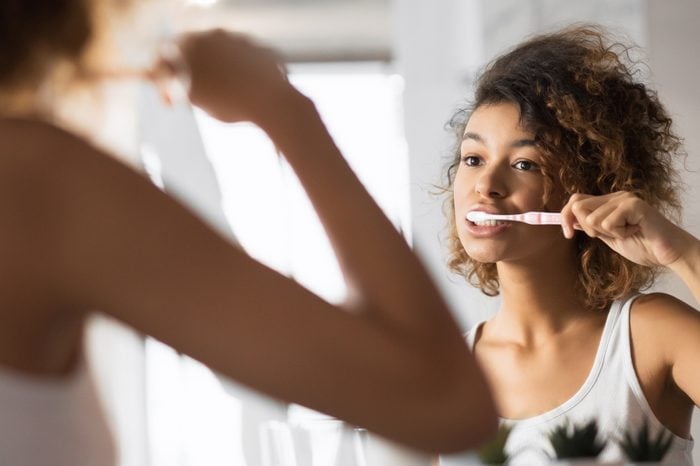
You ignore your gums
If you don’t gently brush your gums too, you may increase your risk for tooth loss, Dr. Kleinman explains. Inflammation along your gumline can trigger the process that can lead to gum disease and tooth loss. (The keyword here is gentle—too much pressure may damage your gums.) Check out these 10 signs of gum disease you may be ignoring.
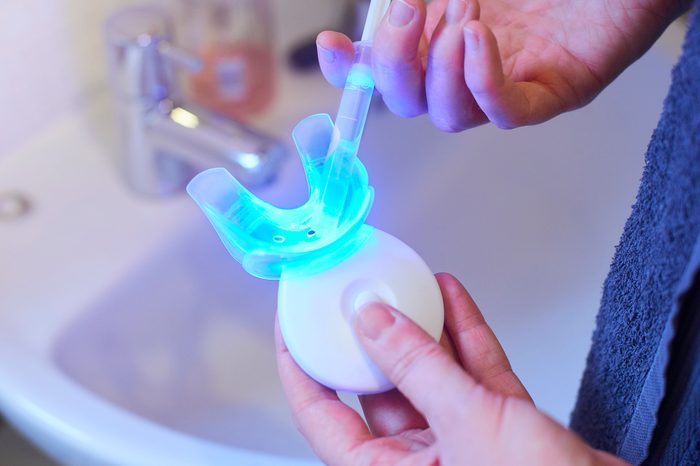
You go overboard with whitening products
Whitening toothpaste, strips, and rinses all promise to give you a gleaming white smile. However, dentists advise exercising caution with whitening products. (Here’s how safe tooth whitening is for your oral health.)
Saul Pressner, DMD, a dentist in New York City, says the overuse of these products may increase tooth sensitivity. “Some of the whitening toothpastes can be too abrasive to the tooth surface,” says Pressner. A 2014 study in the Journal of Evidence Based Dental Practice did find that the use of peroxide-based whitening methods is safe and effective for people as long as the manufacturer’s instructions are followed properly. Pressner recommends talking with your dentist about your options if you are interested in a whiter smile. It may be as simple as using a charcoal toothbrush.
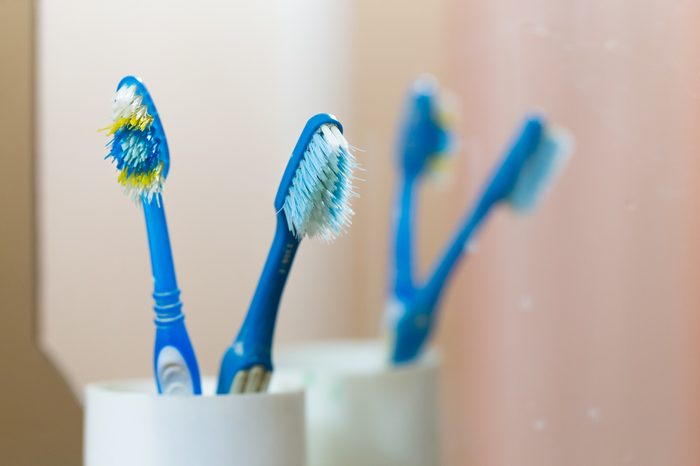
You rarely replace your toothbrush
Your dentist gives you a free toothbrush in your goody bag for a reason. The ADA suggests changing your toothbrush every 3 to 4 months. If your toothbrush’s bristles are frayed and broken, it’s time to throw it out. It’s also important to trash your old toothbrush after a cold, flu, stomach bug, or sore throat, Pressner says. Germs can lurk in-between the bristles and may make you sick again.
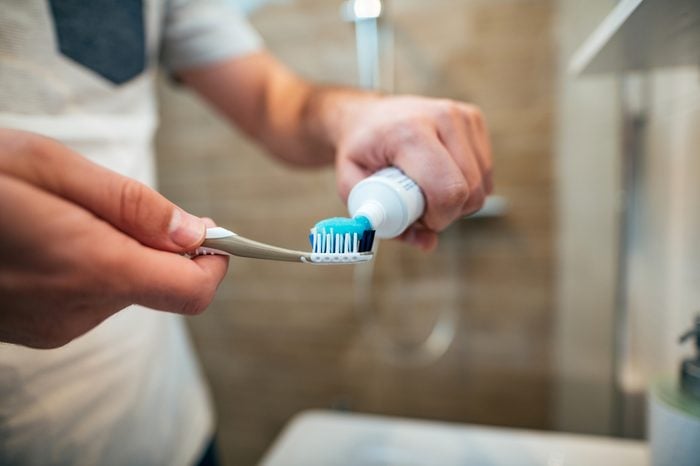
You rush through your brush
Most people spend 45 seconds brushing their teeth. This is more than a minute shy of the suggested length of time. “It is recommended to brush twice daily for two minutes,” says Fatina Shtivelman, DDS, a pediatric dentist in New York City. This can be particularly challenging for kids, she adds. There are toothbrushes that can help children brush longer such as the new Firefly Lion King Ready Go Power Toothbrush with a light-up timer that flashes for 60 seconds for each row of teeth, she says. (Here are 8 ways you’ve been brushing your teeth all wrong.)
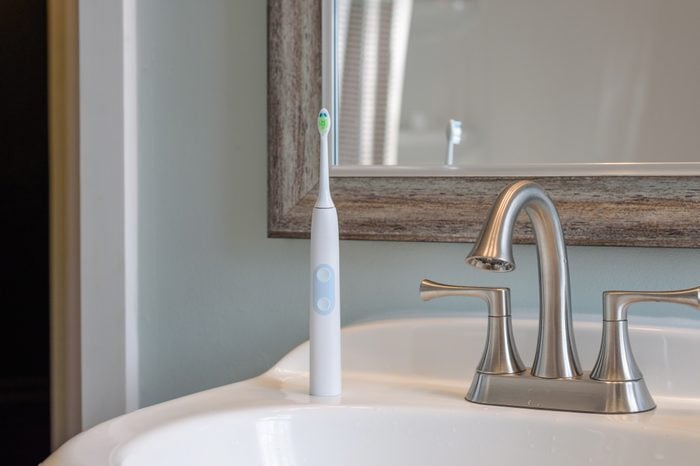
You use the wrong toothbrush
Manual toothbrushes are okay if you have good brushing technique, but if you don’t, you may not get the job done correctly, Dr. Pressner says. “A power toothbrush can be more effective at removing plaque but you have to use it gently,” he says. “You can do more harm than good if you use a power toothbrush too aggressively,” he warns. Talk to your dentist about what kind of toothbrush is best for you. (These are the best electric toothbrushes, according to top dentists.)
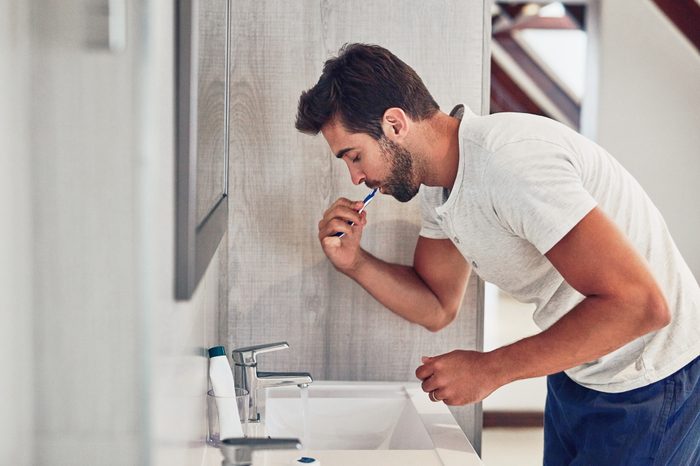
You brush too hard
While not brushing hard enough can increase the risk of decay, pressing too hard or using a hard-bristled toothbrush can wear away gum tissue, Dr. Pressner warns, and “gum tissue doesn’t go back.” This is both a cosmetic issue—a receding gumline can mar an otherwise perfect smile—but also a health issue, because it can increase the root’s vulnerability to damage and sensitivity to temperature. “Once you abrade gum tissue, your root is softer than the enamel so you can do damage more quickly.” The only way to reverse this is with bonding or highly invasive gum grafting procedures, he says. With bonding, your dentist attaches materials directly to your tooth, which protects the exposed root, he says. During gum grafting, gum tissue is taken from another part of your gum and attached to an area where it is receding, the ADA explains. (This is the tooth-brushing mistake that everyone makes.)
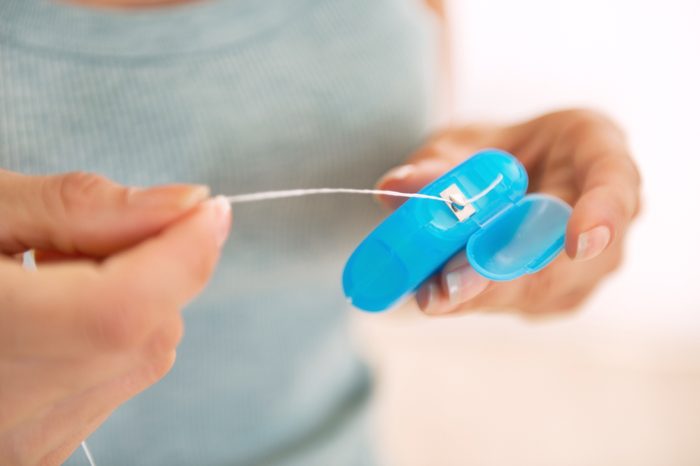
You skip the floss
Failure to floss daily can be a problem. If you don’t floss daily, plaque sets up camp between your teeth, setting the stage for cavities and gum disease, Dr. Pressner says. When you floss daily, don’t snap too hard as this can create gashes in your gums and cause bleeding, and may contribute to gum recession and gum disease. “Water flossers are great if use them horizontally to flush out any loose debris between your teeth instead of top to bottom, which can jam food into the pocket,” he says. (Think you’re an expert flosser? Here are 10 ways you’re flossing all wrong.)
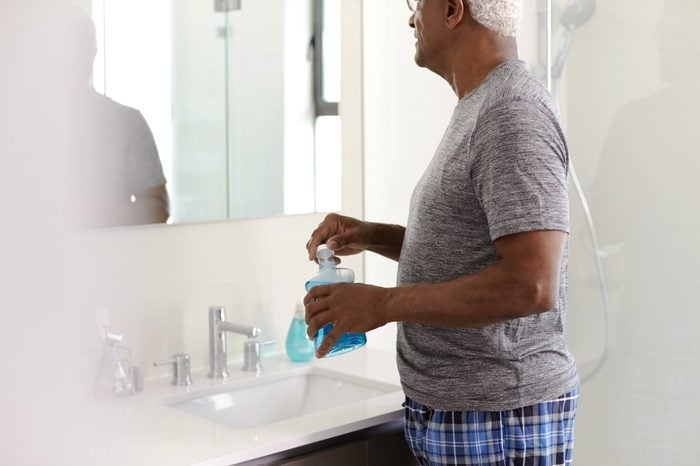
You choose the wrong rinse
Mouthwashes or rinses can provide oral health benefits including reducing plaque and preventing decay and gum disease. Some contain alcohol, which can dry out your mouth, Dr. Pressner says. “If your mouth is dry, you can’t produce saliva and saliva protects teeth from cavities.” During your next visit, ask your dentist about what specific mouth rinses you should use.
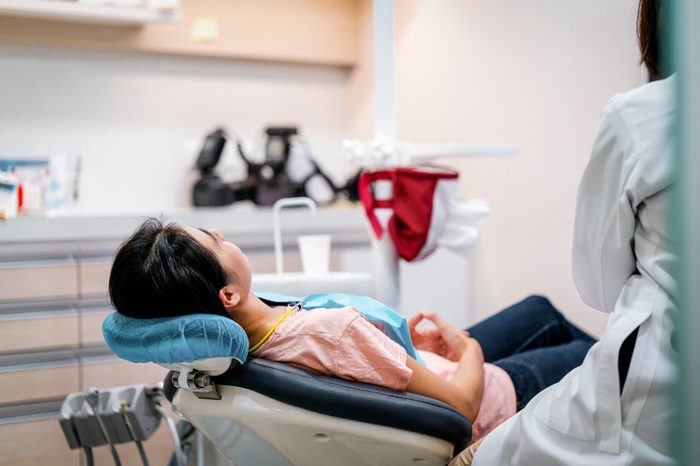
You only brush before you come to the dentist
Everyone has probably been guilty of this at least once, but you can’t fool your dentist, says Dr. Shtivelman. “When the gums are inflamed with plaque, the dentist knows the patient is not brushing properly. Plus, your dentist can likely tell if you’re lying, so it’s always best to be honest to receive the proper oral care.
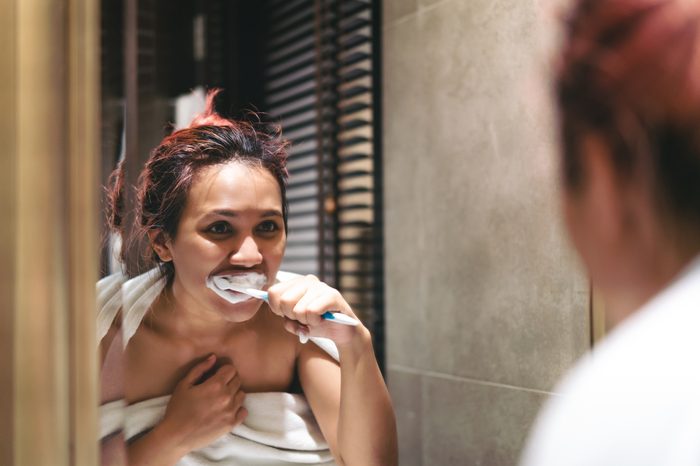
You don’t brush at night
Nighttime is the most important time to brush after your morning brush. “You are eating all day long, so if you’re not brushing at night, this can lead to future dental problems,” Dr. Shtivelman says. (Here are 7 signs of disease your teeth can reveal.)
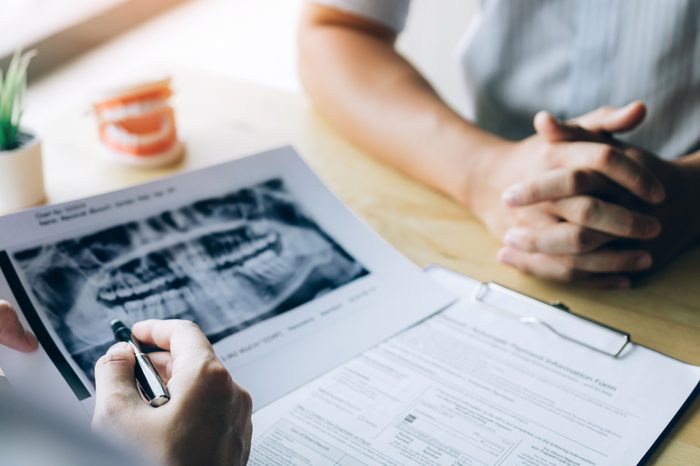
You only see your dentist for emergencies
One of the most common and potentially harmful oral hygiene mistakes is seeing your dentist only for emergencies. It’s important to see your dentist every six months, Dr. Shtivelman says. (These are 10 illnesses dentists find first.)
Some people may need to go more often, including those who are pregnant. The hormonal fluctuations during pregnancy can make your gums more vulnerable to inflammation and bleeding, and possibly increase the risk of having a pre-term or low-birth weight baby.
For healthy teeth and good oral hygiene, be sure to schedule your bi-yearly dentist appointment, but ask your doctor if you need to come in more frequently.
